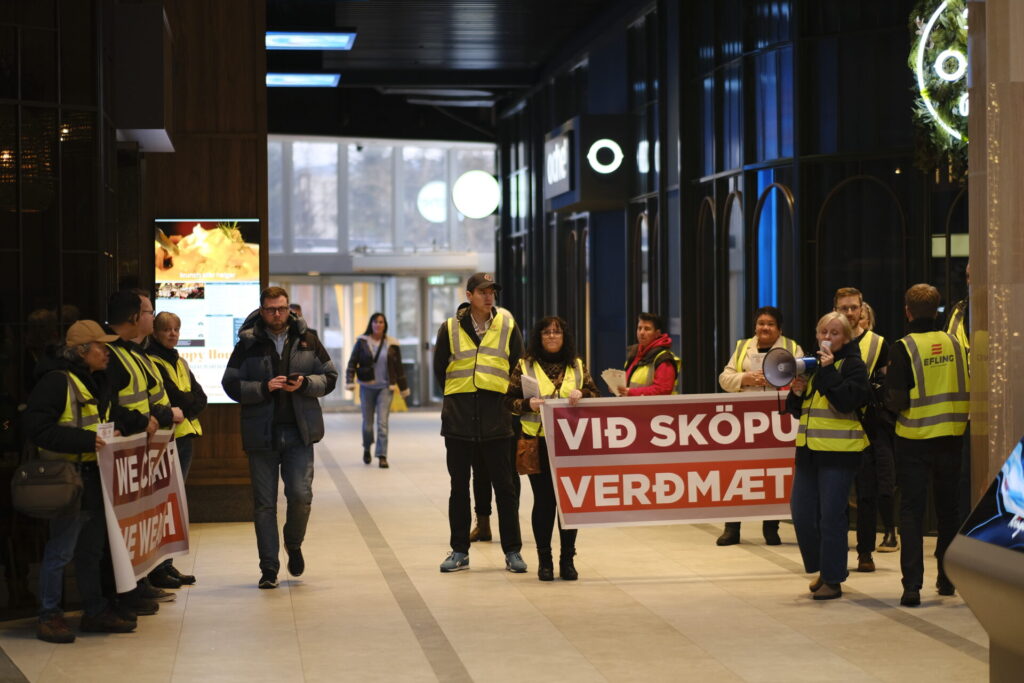
A new study shows clearly that Efling members have by far the lowest incomes on the Icelandic labour market. Nearly half of all Efling members have total employment income below ISK 500,000 per month, more than twice the proportion found among other workers affiliated with ASÍ and BSRB.
There is a vast gap between the employment income of Efling members and that of workers in other unions within ASÍ and BSRB. Among members of those other unions, 22 percent earn less than ISK 500,000 per month, compared to 42 percent of Efling members.
The situation is reversed when looking at higher income groups: very few Efling members earn more than ISK 1 million per month, while nearly a quarter of members in other affiliated unions do so.
80 percent of Efling members belong to the lowest income groups
These are among the findings of a new report by Varða, the labour market research institute, on the situation of wage earners in Iceland. For the past five years, Varða has conducted comparable annual surveys among workers. Efling commissioned Varða to perform a special analysis of the data for the union, which this report draws on.
The figures show clearly how large a share of Efling members fall into the lower income brackets compared to workers in other unions. 37 percent of Efling members have a monthly income between ISK 500,000 and 749,000, compared to 30 percent among other workers within ASÍ and BSRB.
Very few Efling members are in higher income groups
As income levels rise, the proportions shift dramatically. 14 percent of Efling members earn between ISK 750,000 and 999,000 per month, compared to 25 percent of other workers.
Only 7 percent of Efling members have a total income above ISK 1 million per month. This is far lower than the 23 percent of members in other ASÍ and BSRB unions who earn more than ISK 1 million. The difference widens further at the top of the income scale: 10 percent of union members within ASÍ and BSRB earn over ISK 1.25 million per month, compared to just 2 percent of Efling members.
Low wages are reflected in a weaker financial position
Given these figures, it is no surprise that Efling members’ financial situation is significantly worse than that of other workers. Four in ten Efling members experience material or social deprivation, or serious deprivation in both. This is evident in their weaker position on the housing market, lower savings, and higher rate of short-term debt.
A large share of Efling members with children also lack the financial means to pay for basic aspects of their children’s lives, such as leisure activities or school-related expenses.
The results of Varða’s survey highlight the deep divide between working-class people and other groups on the Icelandic labour market. Further analysis of the financial situation of Efling members, as well as other findings from the survey, will be published in the coming days on the Efling union’s website.